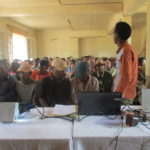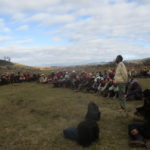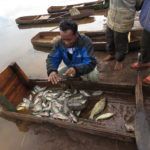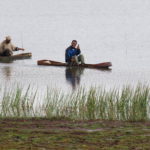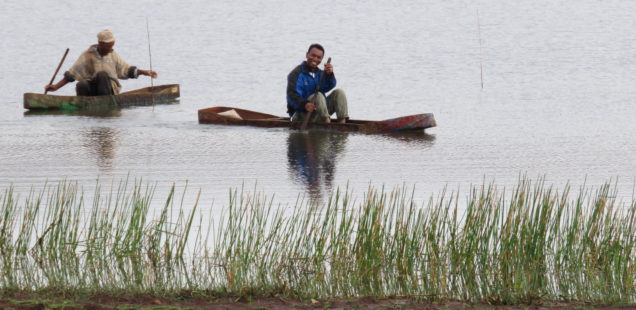
Henri Rakotoson: unity is strength for Madagascar’s communities!
Henri Rakotoson is a most active leader in defending the rights of local communities to a dignified life through equitable access to land, water and other gifts of nature. He leads actions in his community, but also at the national level in Madagascar. His key words are: “to be at the service of his community and the country” and “to share the key factors of success with his peers”.
Henri started his involvement as chief of Fokontany, i.e. representative of the local administration, where he led development initiatives within his territory of life. His work promoted various community solidarity actions, followed by the establishment of a grassroots community organization, with several groups committed to preserve and sustainably manage a 90ha lake and 45ha of forest remnants on the hill of Ambohitsokina. Four local riparian communities comprising 340 households worked together to manage their watersheds and rehabilitate the lake. Over time, a system of community governance was established to ensure sustainable management of water and local biodiversity. Other communities in neighbouring localities then joined the first and created the FIFIMPAVA cooperative.
The cooperative improved the fishermen’s sources of income by providing them with market access and control over the price of fish products. In the meantime, and thanks to self-discipline, the sustainable and equitable management of the lake has improved the sources of income of the families grouped in the water users’ association. Farming families benefit from some fishing activities, but above all from the lake water to irrigate their off-season farming land. During Henri’s term of office, a public primary school was also rehabilitated, and two new classrooms were built on the initiative of the parents’ association that he chaired. Community initiatives have thus ensured sustainable livelihoods for approximately 3,500 people and access to primary education for 250 students.
At one time, Henri had to fiercely defend 25ha of his community’s living space against a supposedly ‘modern’ farm, but in fact only polluting, unsustainable and for the exclusive benefit of a large economic operator. He managed to convince several town councillors to oppose this exploitation project and to pronounce a suspension of this agreement between their commune and the economic operator. For almost six months, he was the victim of reprisals and intimidation by law enforcement officials to get him to give up his resistance… but he never backed down and continued to defend the community lands in all the competent bodies until he won his case.
Henri comes from the rural world and supports his family with his fishing and farming activities, as do all the inhabitants of his locality and the members of his cooperative, 7 km from the town of Antsirabe. He works every day in the cooperative’s office, after morning fishing and collecting fish for sale at the office and the three sales points of the cooperative. But Henri is also convinced of the merits of solidarity and of the fact that “there is strength in unity”. In 2012, he joined the national network of natural resource managers in Madagascar called TAFO MIHAAVO, of which he became Treasurer.
TAFO MIHAAVO is a movement for the recognition of the rights and responsibilities of local communities in the governance and sustainable management of the biodiversity of their living territories. Convinced of the need to ensure the financial autonomy of the local communities that govern their natural resources, Henri facilitated the development of a network of regional cooperatives based on the principles of adding value and using sustainably both the local natural resources and the local know-how. To this end, he keeps travelling around the country to share his experience and build the capacity of his peers. His efforts, which combine the conservation of natural resources and the financial autonomy of local communities, are a model to be followed to ensure better and more sustainable lifestyles in Madagascar.

